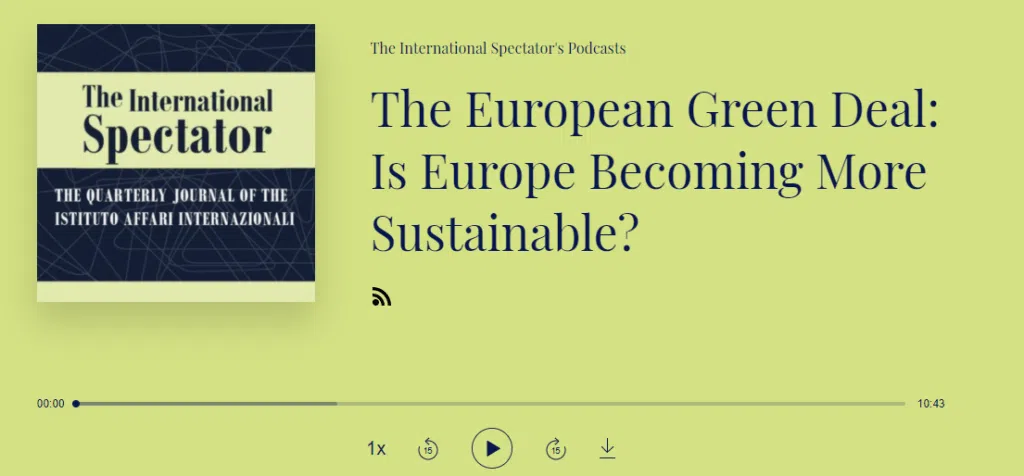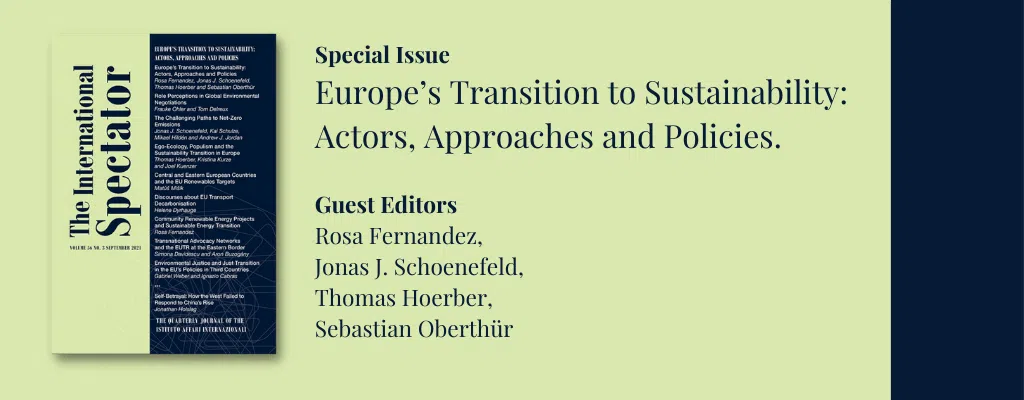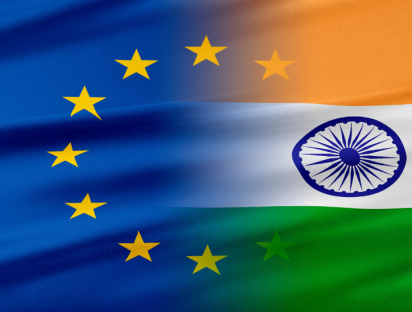Since 2020, the UACES Research Network ‘The Role of Europe in Global Challenges: Climate Change and Sustainable Development’, coordinated by Rosa Fernandez, Jonas Schoenefeld and Thomas Hoerber, has been working on aspects of sustainability research, leading to scholarly debates on the role of the EU in Global Challenges during workshops and conferences.
Special Issue: Europe’s Transition to Sustainability: Actors, Approaches and Policies. Guest Editors: Rosa Fernandez, Jonas J. Schoenefeld, Thomas Hoerber and Sebastian Oberthür
Recently, their research can be seen in a special issue of ‘The International Spectator’, which they co-edited with Sebastian Oberthür. The International Spectator is the Italian Journal of international affairs, including, amongst other things, the international agenda on climate and energy. In this special issue entitled ‘Europe’s Transition to Sustainability: Actors, Approaches and Policies’, academics explore the potential for the EU to play a leading role in the transition to sustainability, particularly in the context of the European Green Deal.
To begin, international negotiations have become a preferential framework for addressing global environmental issues from multiple perspectives. Even if many countries are involved in these discussions, they share different interests and levels of influence. Frauke Ohler and Tom Delreux conceive a typology of perceived roles of countries and regional groups. Eight ideal types are identified, according to the level of three dimensions: ambition, diplomatic activity and influence, and through which dimension the EU appears as the most prominent global reformist leader. A leader that, nevertheless, knows when to serve its own interests, as demonstrated by Gabriel Weber and Ignazio Cabras with the Colombian case. Despite this lapse, the perception of the EU on the international stage is still at the height of its objectives.
Jonas J. Schoenefeld, Kai Schulze, Mikael Hildén and Andrew J. Jordan present new insights on climate policy mixes in the EU Member States and monitoring practices based on an analysis of projected emissions reductions from climate policy instruments over a period of ten-year.
The implementation of climate policy faces some difficulties, among which is the European Union Timber Regulation at the Eastern Border as shown by Simona Davidescu and Aron Buzogany, with national variations. Indeed, States are more inclined to adopt selfish solutions with immediate positive outcomes for national constituencies. Thus, Thomas Hoerber, Kristina Kurze and Joel Kuenzer, introduce the concept of ego ecology. In the same line of thought, Matúš Misik presents how some Central and Eastern European countries went from supporters to critics of EU climate and energy targets.

In this podcast Professor Rosa Fernandez unravels strengths, strategies and challenges for the EU and a more sustainable future.
Sustainable transition covers various sectors, including habitat, food, energy, trade, travel and transport. Helene Dyrhauge finds from different discourses how the transition to a sustainable transport sector could come about, and Rosa Fernandez reports on the role of local communities in sustainable energy transition.
This special issue reveals some areas of concern that have been neglected or not yet tackled, such as the role of perceptions of countries fighting for sustainable development. The European Green Deal empowers the EU on the international stage. Nevertheless, what appears to be a giant leap for the EU, is still a small step to achieving global goals.
_______
The International Spectator offers a preview of this special edition on its blog
SPECIAL ISSUE – The European Green Deal: Is Europe Becoming More Sustainable?
Net Zero Emissions by 2050: Is the EU Moving Fast Enough?
Jonas Schoenefeld, Kai Schulze, Mikael Hildén, Andy Jordan





